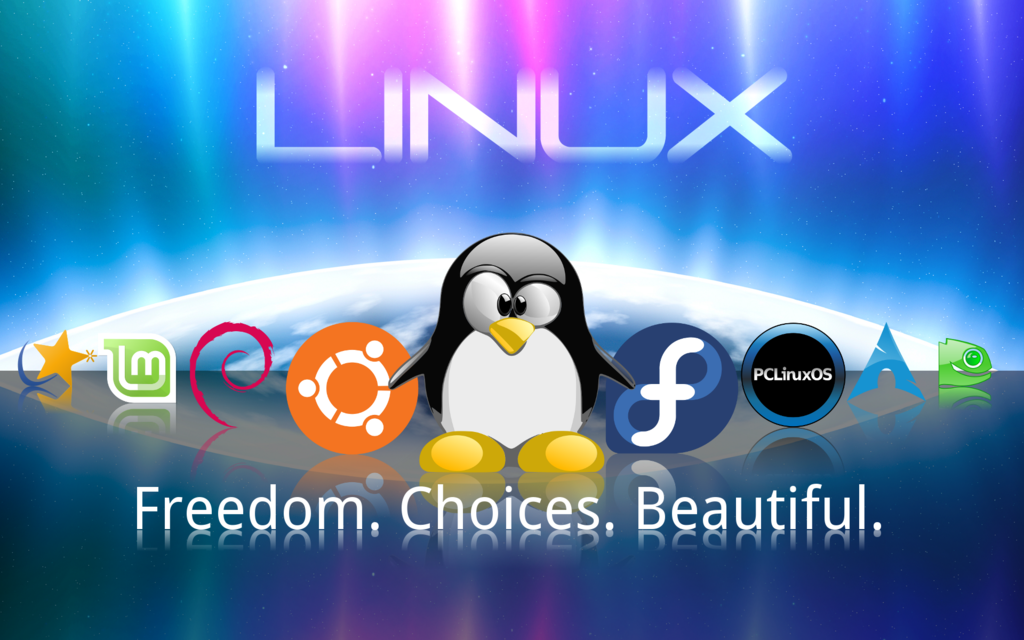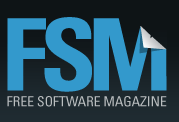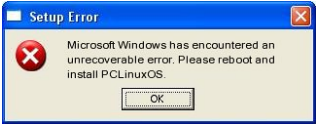| Previous
Page |
PCLinuxOS
Magazine |
PCLinuxOS |
Article List |
Disclaimer |
Next Page |
Windows Migration: Resources & Summary
|
|
by Paul Arnote (parnote) Now that you've taken the plunge and switched from a costly, limiting proprietary operating system to the free and open Linux operating system, you've earned the right to give yourself a huge pat on the back. You've taken the first steps in unleashing the full capabilities of your computer. You've liberated yourself from costly operating system "upgrades" and even costlier software packages. You've freed yourself from the scourge of viruses, malware, spyware and crapware that infests Windows. You've embarked on a journey of freedom. You can say goodbye to the infamous "blue screen of death" that plagues Windows users. Back when I was a Windows user, I could barely go two days without seeing Windows crash and display that !#$*^&@ blue screen. In exchange, you can say hello to a higher level of stability and more security than any Windows user could ever hope to experience. Some Linux users go years without rebooting their computer, and their computers remain running with the same level of stability and reliability as the day they were first booted. When I was a Windows user, if I didn't reboot Windows every day, I would be guaranteed of a visit from that infamous blue screen of death, a.k.a. the BSOD.  Linux gives you a flexibility and freedom to configure and use your computer the way you want. You're not restricted to using and configuring your computer the way some corporate entity that's only concerned about profits dictates that you should use or configure your computer. Without a doubt, the computer skills you developed while using Windows -- using a mouse and keyboard, opening and saving files, etc. -- will transfer easily and readily to your Linux skill set. But it's also important to keep in mind that while there are similarities, Windows is not Linux, and Linux is not Windows. They are different from one another, which is a good thing. If you wanted things to be the same, you'd still be using Windows. Linux users fervently believe that the Linux way of doing things is better. Because Linux and Windows are different, there will be a learning curve while you learn those differences, along with the different ways of doing things under Linux. To help you out, I've compiled a list of reference resources to assist you along the way. This list, however, is not an exhaustive list. There are many, many more resources available to you than I could ever possibly list here. If you don't find what you're looking for in the list below, don't hesitate to perform an internet search. Chances are high that you'll find a solution. Forums PCLinuxOS Forum: for any PCLinuxOS user, the first place to go for help and guidance really should be the PCLinuxOS forum. There, you can talk with and pick the brains of others who are also using PCLinuxOS. Don't worry … those who frequent the forum are generally a friendly and helpful bunch. Just be sure to acclimate yourself to the forum rules by reading the "sticky" posts in each section. LinuxQuestions.org: the LinuxQuestions.org forum is a very friendly place where you can talk with Linux users from virtually every and any Linux distro. While this forum is more focused on Linux in general, there are also sections of the forum that cater to specific Linux distros. LinuxForum.com: similar to LinuxQuestions.org, the LinuxForum.com forum is more broadly focused on Linux in general. There is a section of the forum that caters to specific Linux distros. IRC: Internet Relay Chat Internet Relay Chat has been aroun... well, forever. IRC was a thriving place over 25 years ago when I first discovered it. Just a quick search of IRC channels for "linux" specific topics listed over 1100 channels, all on the FreeNode IRC network. As a PCLinuxOS user, there are also specific IRC channels for your use. First, there is the #PCLinuxOS channel, which is for general chit-chat about PCLinuxOS and other topics of interest. If you have a support question, head on over to #PCLinuxOS-Support. If you want to chit-chat with the staff of The PCLinuxOS magazine, drop into the #pclosmag channel and introduce yourself. Don't be shy. Feel free to ask your question. If you don't get an answer right away, just hang out for a while. Chances are good (especially in the specific support channel) that someone will stumble upon your question and offer to help. Even though there may be lots of people listed in the channel, they may be away from their computers. However, they will attempt to answer your question once they discover your request for help -- provided you are still around. Magazines  For PCLinuxOS users, the first place to look for PCLinuxOS specific information would be this very magazine -- The PCLinuxOS Magazine. On the magazine's website are every back issue of the magazine ever produced, plus every special edition, and it's all free of charge. Here is a list of other magazines aimed at Linux users and free software:  Free Software Magazine: aimed at covering Linux and the free software movement. An online ezine magazine.  Full Circle Magazine: despite targeting Ubuntu users, you can also find some good, general interest Linux articles within its pages. Download as a PDF.  Linux Format: the best selling Linux magazine in the UK, you'll find all sorts of useful information within its pages. This magazine is available for a cost with a subscription. Even if you don't subscribe, there is some content that's available for free. Also keep your eyes open for free, complimentary issues and special editions.  Linux Gazette: Although no longer published on a consistent basis (the last issue on the web site is January 2013), new content is being added periodically, even if irregularly. Linux Gazette was started in 1995. You are likely to find some valuable information by browsing through the magazine's archived issues.  Linux Journal: the oldest magazine devoted specifically to Linux, it was started in 1994. In 2011, the magazine ceased production of a print version, and now publishes a monthly magazine available in digital download formats (similar to how The PCLinuxOS Magazine publishes). It's available by subscription for $29.95 (U.S. dollars) per month. However, don't let the paid subscription status deter you. There is a considerable amount of "free" or complimentary content available on their website.  Linux Magazine: an online-only magazine by subscription, there is a considerable amount of content that is available for free. Those are the major magazines that target users of Linux. There are others, but they are either very narrow in their appeal, or they have ceased publication. Websites
Linux.com: this is THE authoratitive voice of Linux, since this is the home page of The Linux Foundation. Phoronix: this website specializes in hardware and software reviews, as well as an excellent source of Linux news. Tuxmachines: a good source for Linux news, run by Susan Linton. Distrowatch: a site that reviews Linux distros and ranks them by popularity. LWN.net: an excellent news site for all things related to Linux. Going Linux: a website specializing in information that's useful for computer users transitioning from Windows to Linux. Of particular interest may be their resource page. IBM developerWork: IBM is one of the many companies that is a regular contributor to Linux. In fact, they are one of the largest companies that contribute to Linux. This particular page is dedicated to teaching basic Linux concepts to users new to Linux. Linux.org: a user supported community website whose mission is to promote Linux through education. The content of this website is designed to be interacted with by the Linux Community. Books O'Reilly Publishing: publishes all kinds of computer manuals, books and educational materials... including those covering topics of interest to Linux users. Want to learn the command line? Want to learn how to program? Want to learn bash scripting? Want to learn more about Linux networking? All of these topics -- and more -- are covered in O'Reilly's offerings. User Groups Perhaps one of the most overlooked resources are local Linux User Groups. They usually meet regularly in space that's donated by either schools, libraries or computer shops. You can perform an Internet search for user groups in your area, or you can ask around at your local computer shops for contact information. You'll have the chance to meet with other Linux users from your area, usually without a preference for any one particular distro. As you become more proficient, you can give presentations about different aspects of your favorite Linux distro -- which will (hopefully) be PCLinuxOS. Summary Congratulate yourself on making the switch from the costly, proprietary world of Windows to the free, open world of Linux. You've taken a huge step in breaking the chains that have held your and your computer's capabilities down. There is so much more in this world than "just Windows." We, your fellow Linux users, think that there is something much better than Windows, and we think that we have found that with Linux. It is our hope here at The PCLinuxOS Magazine that we have provided at least some assistance in making your transition to Linux easier and a lot more enjoyable. Good luck! |






